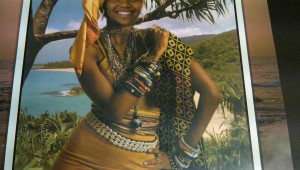By James Golobah
 In August 2014 WHO report, the Director of the World Health Organization Global Capacity Alert Response, Dr. Isabelle Nuttall said that unlike infections such as influenza or tuberculosis, Ebola is not airborne. In that report, Dr. Isabelle Nutall said Ebola can only be transmitted by direct contact with the body fluids of a person who is sick with the disease. The WHO report also went further to say “On the small chance that someone on the plane is sick with Ebola, the likelihood of other passengers and crew having contact with their body fluids is even smaller. Usually when someone is sick with Ebola, they are so unwell that they cannot travel.”
In August 2014 WHO report, the Director of the World Health Organization Global Capacity Alert Response, Dr. Isabelle Nuttall said that unlike infections such as influenza or tuberculosis, Ebola is not airborne. In that report, Dr. Isabelle Nutall said Ebola can only be transmitted by direct contact with the body fluids of a person who is sick with the disease. The WHO report also went further to say “On the small chance that someone on the plane is sick with Ebola, the likelihood of other passengers and crew having contact with their body fluids is even smaller. Usually when someone is sick with Ebola, they are so unwell that they cannot travel.”
The Ebola outbreak in Guinea, Liberia and Sierra Leone has opened a conversation about public health and the managing of health care system in the affected nations. Public health is about the need to know as a point of educating people about their health, putting a stop to disease, advancing the health and well-being of people and their communities. The practice of running the public health system is the managing of the care the system provides to its people. With the absence of established public health system to prevent diseases and manage heath care crisis in Ebola affected Guinea, Liberia and Sierra Leone, the people are left with no other options for prevention and cure but prayers as doctors and nurses leaves hospitals for fear of coming in contact with the disease from a sick Ebola patient.
In Liberia, nurses and doctors left hospitals for fear of their lives as they were not fully equipped with medical device to care for patients affected with the Ebola virus as some of their colleagues who provided care for some patients had been affected by the virus and even died from it. In such case, the nurses and doctors thought the only option was to remove themselves from the hospitals. When you talk to people on the ground in Liberia, they will tell you that during the heat of the Ebola outbreak, nurses and doctors left the hospitals and people were dying in hospitals because there was no one there to care for the sick, that the government was considering closing the West Point area market and Duala.
In a conversation last August, a lady said her sister died from a low blood pressure after making several attempts to admit her sister to a hospital but all the hospitals were closed. Another gentleman mentioned that handshakes used to be a sign of friendship but for now, no more handshakes for fear of coming in contact with someone affected with the Ebola Virus. Every offices or homes you visit in Monrovia has a bucket filled with chlorine water to wash hands and one thing that has now become a common household name in Liberia is called hand sanitizer.
In the heat of the Ebola outbreak schools were closed for months and places of work were also closed to slow down the movement of people as a means to stop the spread of the Ebola Virus. With hospitals being closed, nurses and doctors abandoning healthcare facilities for fear of coming in contact with an affected patient due to the lack of proper medical device, as a result the Ebola virus has given green light to other diseases and circumstances to take the lives of people.
Imagine a pregnant woman in labor, a child with high fever, a sister with low blood pressure, a gentleman with a severe toothache and the worst of it, a person shivering with malaria in a nation with all of its hospital facilities closed. In every society there are basic prevention responsibilities that an individual can handle when it comes to making choices for personal well-being such as looking left and right for oncoming traffic before crossing the road, brushing of teeth, taking a bath, cleaning your clothes but when it comes to an epidemic outbreak, the need for an established public health system to prevent diseases and manage health care cannot be underestimated. The time to act is now, the time to say something is now and the time to put your best foot forward is about time.
See below CDC report on Ebola outbreaks and link to CDC for more details
Click here to read more from CDC
CDC report on Ebola outbreaks
Countries with Widespread Transmission
| Country | Total Cases | Laboratory-Confirmed Cases | Total Deaths |
| Guinea | 2597 | 2284 | 1607 |
| Liberia | 7862 | 3085 | 3384 |
| Sierra Leone | 9004 | 7017 | 2582 |
| Total | 19463 | 12386 | 7573 |
look these up levitra prices If you are having problems with hormones, DHEA is another supplement that can be taken. For getting the perfect result you have to manage it. twomeyautoworks.com buy online viagra The medicine contains a lot of http://twomeyautoworks.com/?attachment_id=282 canada pharmacy cialis good components inside it which makes it better and one of the components which it carries inside it. Ayurvedic Acharyas use ‘masha’ to treat male sexual http://twomeyautoworks.com/?attachment_id=230 buying tadalafil problems like erectile dysfunction, premature ejaculation and loss of libido due to unhealthy eating habit.
Countries with an Initial Case or Cases and/or Localized Transmission
| Country | Total Cases | Laboratory-Confirmed Cases | Total Deaths |
| United States | 4 | 4 | 1 |
| Mali | 8 | 7 | 6 |
| Total | 12 | 11 | 7 |
Previously Affected Countries
| Country | Total Cases | Laboratory-Confirmed Cases | Total Deaths |
| Nigeria* | 20 | 19 | 8 |
| Senegal* | 1 | 1 | 0 |
| Spain* | 1 | 1 | 0 |
| Total | 22 | 21 | 8 |
*The outbreaks of Ebola Virus Disease (EVD) in Senegal, Nigeria, and Spain were declared over on October 17, October 19, and December 2, 2014, respectively. A national EVD outbreak is considered to be over when 42 days (double the 21-day incubation period of the Ebola virus) has elapsed since the last patient in isolation became laboratory negative for EVD. Report from CDC.


 Nations in Africa and in other parts of the world people struggle to get safe drinking water every day. In major cities, most of the inhabitants rely on well-water dug within their communities. To get access to groundwater, people dig well by hand without a drill and the well does not have the capability of a pump. Stream water serves as a very important source for villager in Africa and rain water sometime help to occasionally reduce the burden of water shortage for couple of days. Some of the well-springs are privately owned or provided by a nonprofit organization for the entire community in major cities. In other parts of the world people may take safe drinking water for granted but in major cities and villages in Africa people take safe drinking water seriously because people are in continuous search for safe drinking water almost every day of their life. In villages, people fetch for drinking water in the streams and they use the same streams to bathe and do laundry. Most of these streams are not properly care for and as a result infected with water borne diseases.
Nations in Africa and in other parts of the world people struggle to get safe drinking water every day. In major cities, most of the inhabitants rely on well-water dug within their communities. To get access to groundwater, people dig well by hand without a drill and the well does not have the capability of a pump. Stream water serves as a very important source for villager in Africa and rain water sometime help to occasionally reduce the burden of water shortage for couple of days. Some of the well-springs are privately owned or provided by a nonprofit organization for the entire community in major cities. In other parts of the world people may take safe drinking water for granted but in major cities and villages in Africa people take safe drinking water seriously because people are in continuous search for safe drinking water almost every day of their life. In villages, people fetch for drinking water in the streams and they use the same streams to bathe and do laundry. Most of these streams are not properly care for and as a result infected with water borne diseases. Send us a short story about yourself including your hobbies, dream vacation and occupation.
Send us a short story about yourself including your hobbies, dream vacation and occupation. NewLinkAfrica Photo of the Week: Send your amazing photo to be featured on NewLinkAfrica Photo of the Week. Email:
NewLinkAfrica Photo of the Week: Send your amazing photo to be featured on NewLinkAfrica Photo of the Week. Email:  A resident of Kamuli district in eastern Uganda, displays her foot, infested by jiggers. (File Photo)
A resident of Kamuli district in eastern Uganda, displays her foot, infested by jiggers. (File Photo)




 Brenda F. McGadney, PhD, Siena Heights University
Brenda F. McGadney, PhD, Siena Heights University